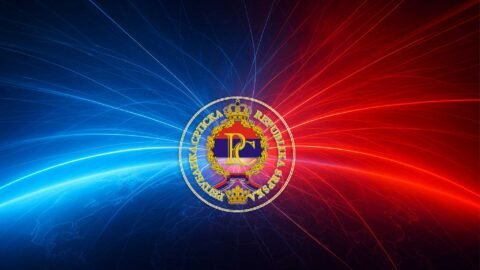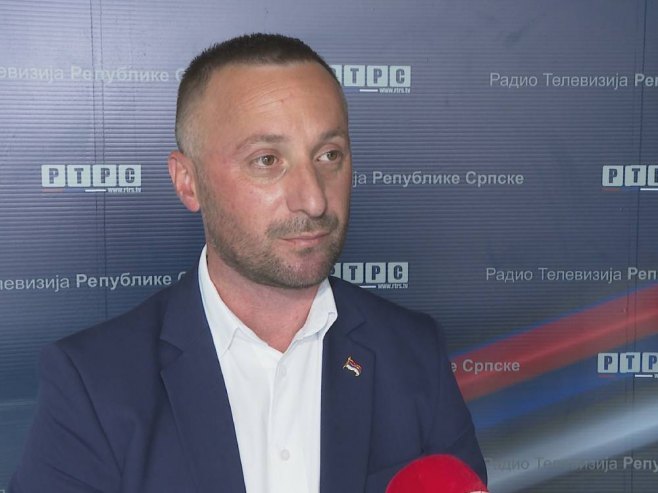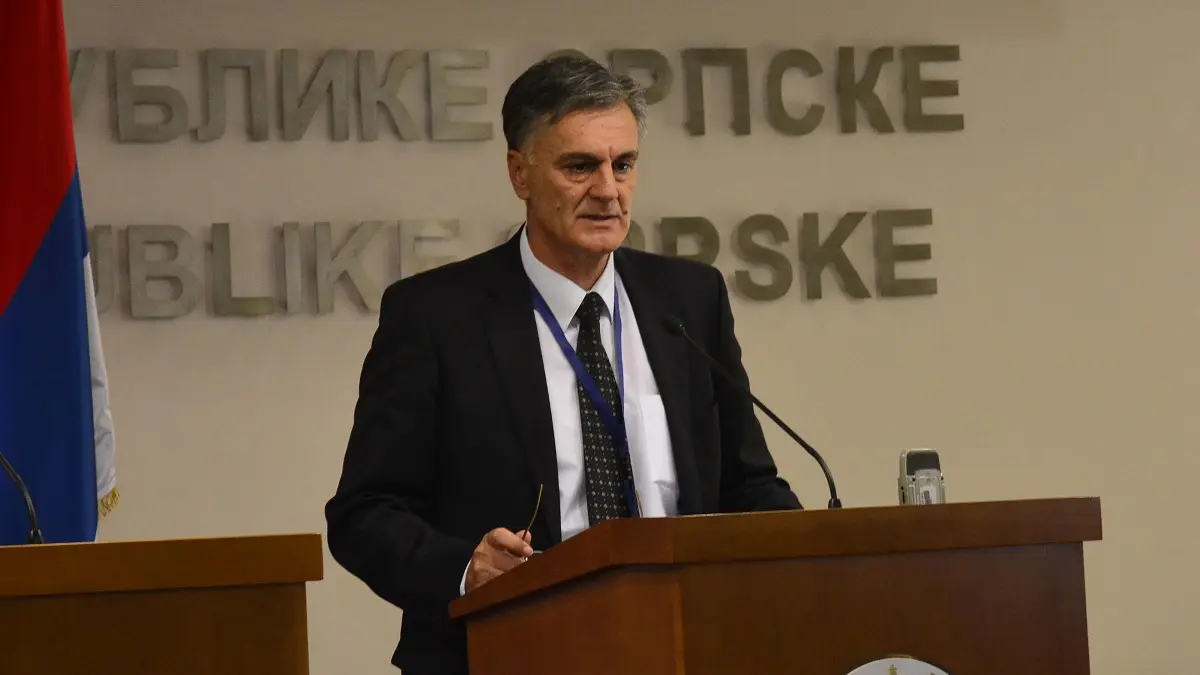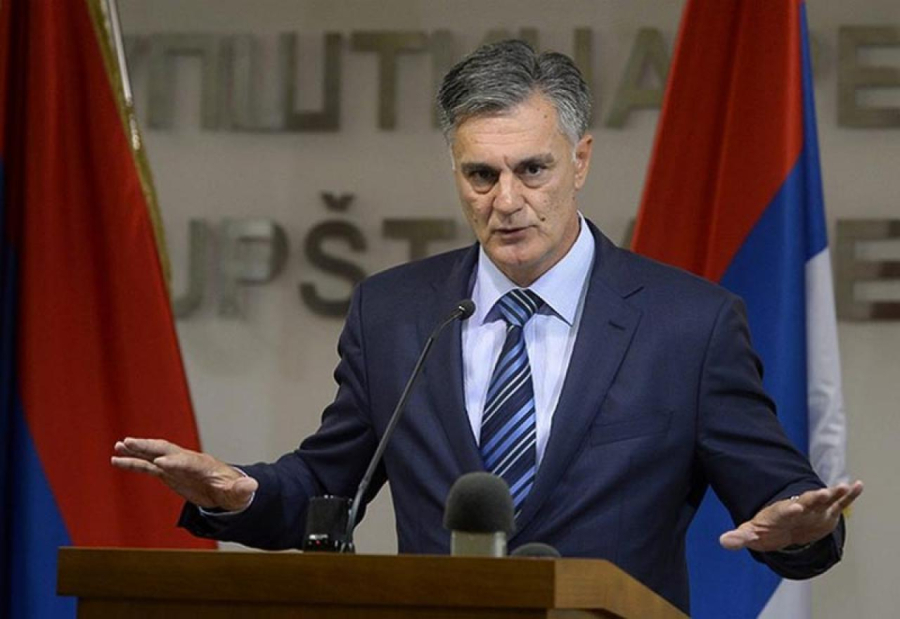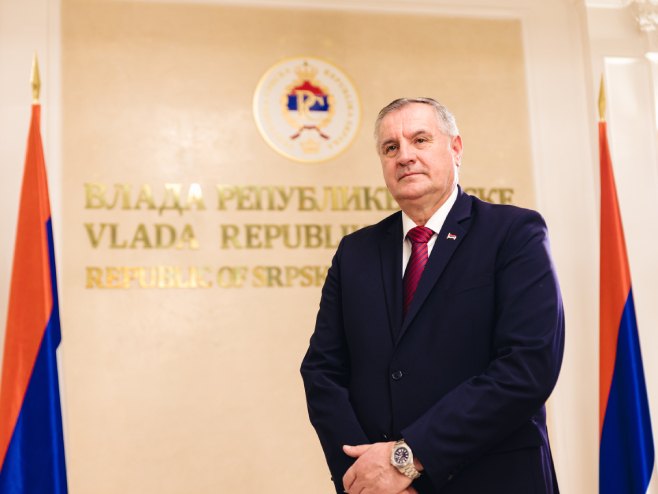Professor of Constitutional Law, Siniša Karan, pointed out that nearly three decades of imposing laws by high representatives, making unconstitutional decisions by the Constitutional Court of Bosnia and Herzegovina, and the potential enactment of the so-called “Srebrenica Resolution” have been carried out with a sinister and clear purpose – to declare the Serbs a genocidal people and Republika Srpska a genocidal creation, despite its formation before the civil war in Bosnia and Herzegovina.
“The initiators’ desire to draft this so-called resolution and its potential enactment is very clear – to assign a ‘label’ to the Serb people that not even Germany carried, despite all the atrocities it committed in World War II,” Professor Karan stated in a column for Srna, which we reproduce in full:
While we witness Germany, as one of the proponents, pushing for the adoption of the Srebrenica resolution at the UN General Assembly, we clearly see the linkage between the imposition of the law banning the denial of ‘genocide in Srebrenica’ and the Srebrenica resolution.
Thus, another toxic mechanism in the political process against Republika Srpska has been activated, aiming at the unification of Bosnia and Herzegovina and the demonization of the Serb anti-fascist and freedom-loving people!
Limiting the human right to publicly express views on this topic clearly shows that the proponents want to forge their “truth,” tailored to their measure, which is entirely in function of pressuring Srpska and all Serbs.
However, “truth” modeling has also been conducted through selective, biased, and unobjective work in the field of investigating and documenting war crimes by judicial institutions of Bosnia and Herzegovina, exploiting the fact that the issue of justice, fairness, rule of law, and the right to a fair trial in Bosnia and Herzegovina is not just a matter of the judiciary but a fundamental issue of the state’s being and functioning.
In this regard, it should be noted that the Court and the Prosecutor’s Office of Bosnia and Herzegovina have actually drawn a new political system in Bosnia and Herzegovina through selective prosecution detrimental to one people. Between 2005-2011, the Prosecutor’s Office of Bosnia and Herzegovina charged 189 individuals: 132 Serbs, 26 Croats, and 31 Bosniaks, while the total number of individuals convicted in the Court of Bosnia and Herzegovina stands at: Serbs 1,093 years and nine months, Croats 161 years and six months, and Bosniaks 129 years.
I remind you of the Report of the Independent International Commission for the Investigation of the Suffering of All Peoples in the Srebrenica Region from 1992 to 1995 led by Israeli historian Gideon Greif, which clearly established the proportion of victims on all sides and stated that the term “genocide” for Srebrenica is inaccurate and unacceptable.
This report provides a comprehensive and truthful view of the wartime events in the Srebrenica region and throughout Bosnia and Herzegovina, contributing to the enhancement of trust and tolerance among the peoples in Bosnia and Herzegovina, ultimately fostering reconciliation and coexistence of current and future generations.
The unfortunate Valentin Inzko attempted to impose a law (Law on Amendments to the Criminal Code of Bosnia and Herzegovina) that would take away and limit our freedom of public expression of thoughts and beliefs.
The High Representative has no legal authority to disregard the democratic legislative system of Bosnia and Herzegovina and to decree laws, and his decision at the time represents an attack on the democratic constitutional order of Bosnia and Herzegovina, as well as an unjustified threat to reconciliation, free historical research, and freedom of expression.
The provisions of his “decision to enact the Law on Amendments to the Criminal Code of Bosnia and Herzegovina” are contrary to the European Convention on Human Rights. Additionally, the European Court of Human Rights has clearly indicated that states are not permitted to adopt laws that severely restrict and criminalize freedom of speech.
Thus, Inzko’s threat of a censorial law is contrary to the practice of the European Court of Human Rights and also to the judicial practice of most member states of the Peace Implementation Council.
Freedom of expression is a civilizational achievement, a condition for the progress of human society, and the most general form of freedom, defined as the freedom to express thoughts whether they concern ideas, knowledge, beliefs, values, or are expressed through words, writing, or images, utilizing all modern means of reproduction and diffusion of thoughts and words, whether printed material or modern information technology, including books and print.
Annex Six of the General Framework Agreement for Peace in Bosnia and Herzegovina is dedicated to respecting human rights and organizing competencies in their protection. In this regard, the Constitution of Bosnia and Herzegovina declares these international standards as a priority over all otherlaws. Thus, all achievements of human rights, codified in numerous international documents, have become an integral part of the legislation of both Bosnia and Herzegovina and its entities.
Given the far-reaching consequences of possibly adopting such a resolution, which inevitably leads to a political showdown with members of the Serb nation, the institutions of Republika Srpska will provide a decisive response to this unprecedented act that would stigmatize an entire people.
Source: RTRS
